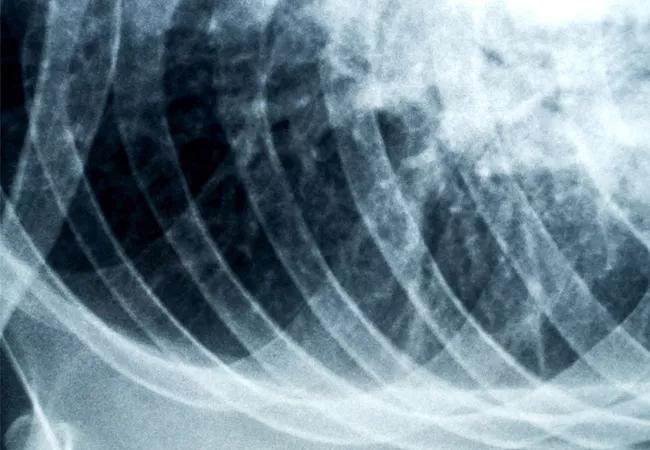Virtual visits and standardized multisite communication

Advertisement
Cleveland Clinic is a non-profit academic medical center. Advertising on our site helps support our mission. We do not endorse non-Cleveland Clinic products or services. Policy
With the advent of improved diagnostic and treatment modalities, patients with cystic fibrosis (CF) are living longer than ever. These patients face irreversible, end-stage pulmonary disease, such as CF-related bronchiectasis and suppurative lung infections, and eventually need lung transplantation.
At Cleveland Clinic, our adult CF and lung transplantation programs work together to achieve the best outcomes for patients, including those with lung allocation scores often far higher than the U.S. mean and median. Our patients are often younger, with significantly more comorbidities, and on mechanical cardiopulmonary support.
Guidelines for referral and transplantation timing for patients with CF are lacking, so our group has formed a CF lung transplant transition collaborative that includes Cleveland Clinic and referring providers, as well as patients, to address these and other issues. Our initiatives in virtual visits and referral center communications have thus far led to improved patient outcomes and experience.
Traditionally, we have delivered post-transplant patient education after surgery and prior to discharge; but why study for the test after you’ve already taken it? Our team has devised a virtual system to educate patients with CF about what to expect during their surgery and recovery while they’re waiting for a transplant. Ten-minute monthly sessions focus on topics including “what to expect the night of your transplant,” “my medications after transplant,” “supporting your transplant” and “what should I not do after transplant.”
Advertisement
These presurgical sessions about postsurgical care give patients more time to focus on and absorb the information. They also allow us to standardize education and improve patient communication with transplant team members. Virtual visits also allow our team greater connectedness to patients with geographical and access-related limitations.
We have been conducting interim surveys to assess preparedness and engagement and have found very favorable results. Additionally, some patients enrolled in these virtual visits have had fewer readmissions, but more research is needed to further elucidate this relationship.
As a large transplant center, Cleveland Clinic has worked to optimize the referral process for outside patients seeking transplant; however, we have found that referral centers vary widely in their views on timing of referral and patient selection as well as their methods of communication with the transplant center. Some centers were referring patients later than necessary or even deeming the patients not appropriate for transplant based on the expected number of years lived after transplant.
We initiated a program to standardize CF lung transplant transition communication with one of our major referral centers. We studied the issues that matter most to both referring and transplant centers and jointly created guidelines and processes designed to improve patient outcomes. Standardizing communications helped us transition patients to the referral center before their situations became emergent and helped reduce redundancy in spending from repeated and unnecessary tests.
Advertisement
We are currently working with Dartmouth Microsystems Institute and the CF Foundation to write lung transplant referral guidelines. Right now, there is no consensus on the best time to refer a patient with CF for lung transplant. Our goal is to create a set of guidelines that leads to more prompt and appropriate referrals and ultimately to better patient outcomes.
We are also conducting a clinical trial assessing patient satisfaction with our transplant process. Ten transplant candidates with CF are undergoing the virtual visit educational sessions with interim surveys and post-transplant surveys and assessments. Funded by the Cleveland Clinic Annual Fund Grant, we hope trial results will help us refine and expand our program.
Our hope is that improved delivery of patient education and shared goals and standards between referring and transplant teams will lead to better outcomes and experiences for our patients in our Adult CF Program.
Dr. Turowski is Associate Director of the Adult Cystic Fibrosis Program.
Advertisement
Advertisement

Recent breakthroughs have brought attention to a previously overlooked condition

A review of treatment options for patients who may not qualify for surgery

Looking at the real-world impact and the future pipeline of targeted therapies

The progressive training program aims to help clinicians improve patient care

New breakthroughs are shaping the future of COPD management and offering hope for challenging cases

Exploring the impact of chronic cough from daily life to innovative medical solutions

How Cleveland Clinic transformed a single ultrasound machine into a cutting-edge, hospital-wide POCUS program

Collaborative patient care, advanced imaging techniques support safer immunotherapy management